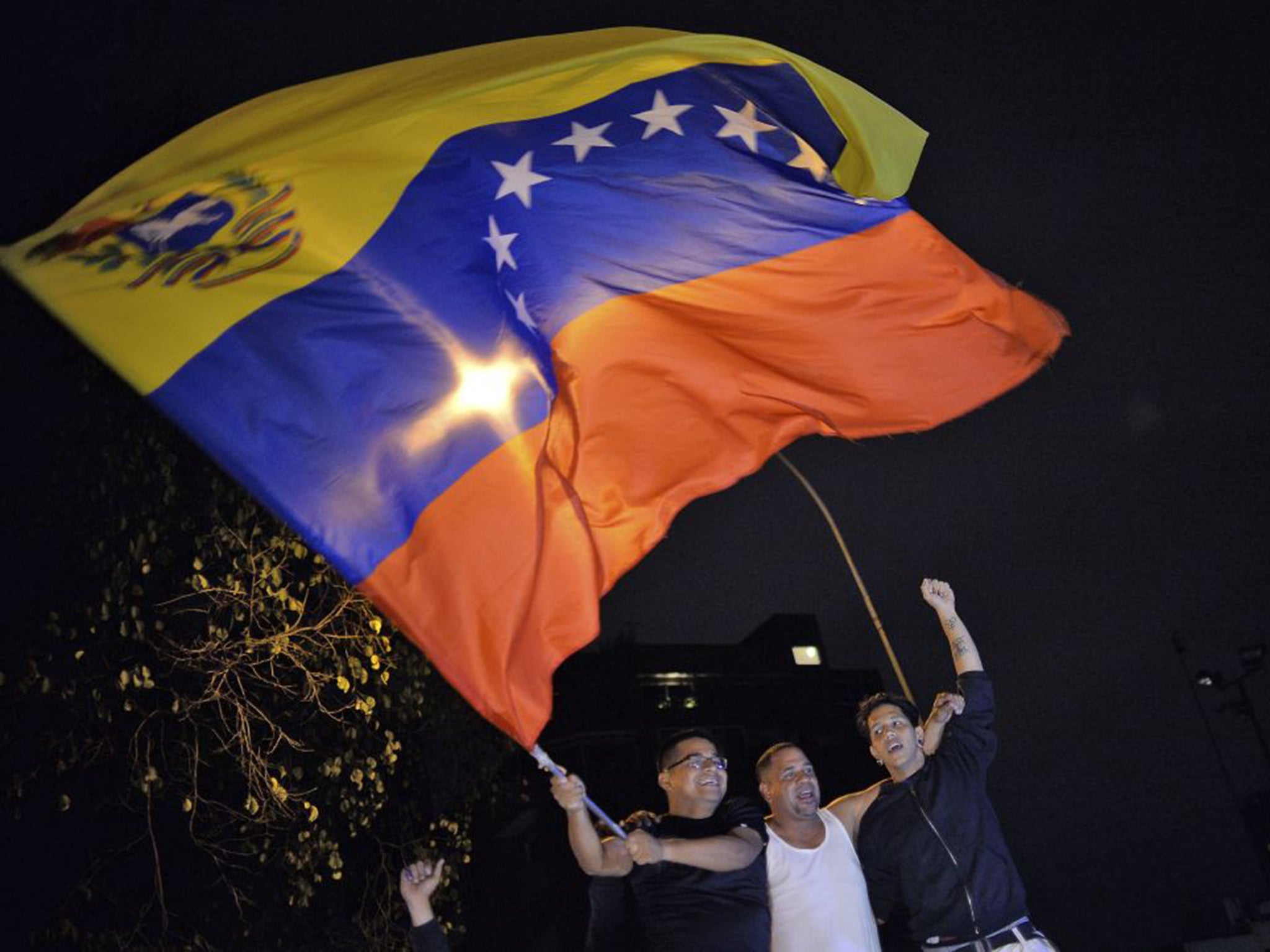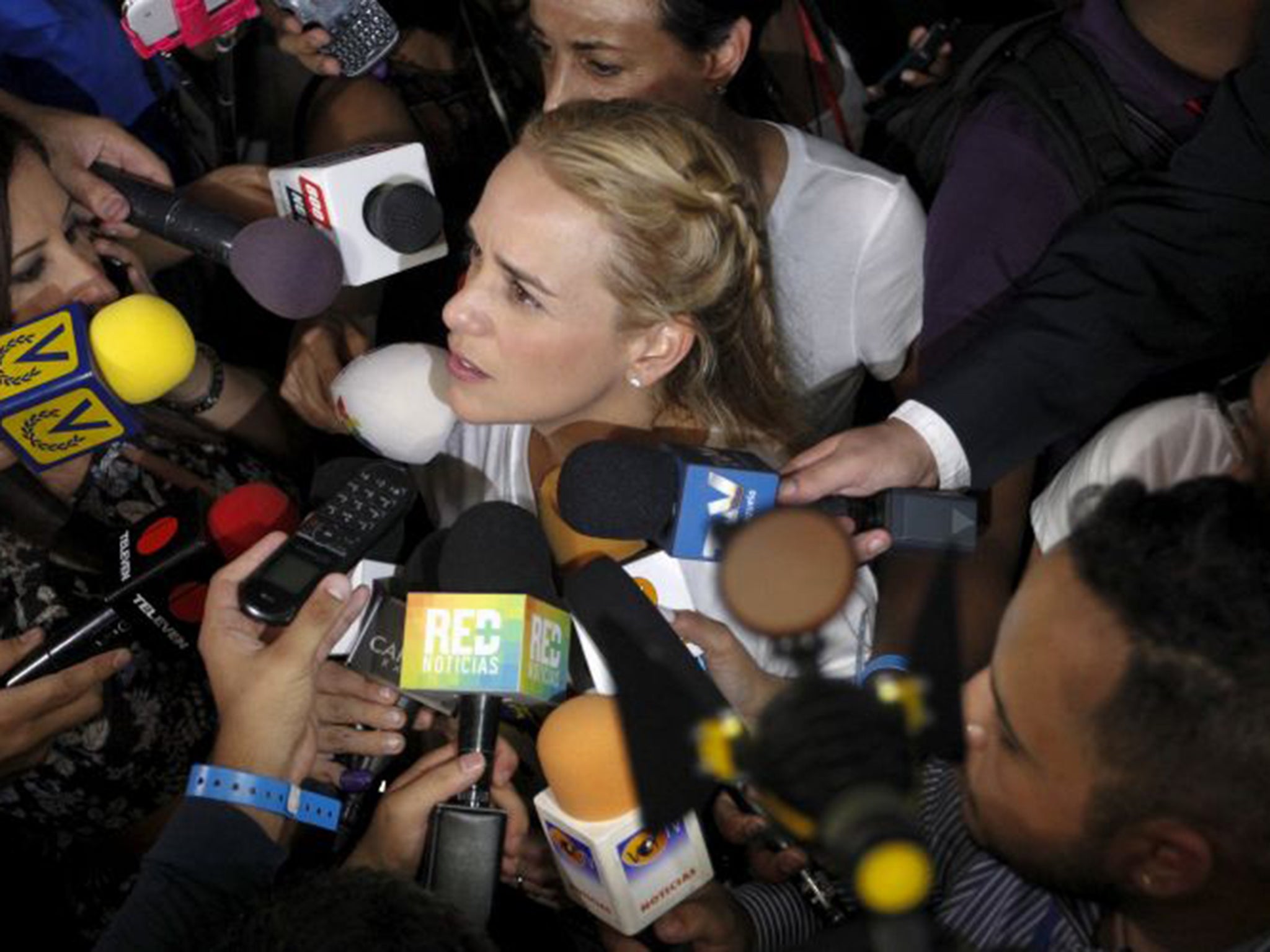Venezuelans try centre ground as ‘Chavismo’ suffers first loss in over 16 years
The scale of the rout will embolden the opposition to attempt to derail President Maduro’s policy agenda

A resounding defeat for the ruling socialist party of President Nicolas Maduro in parliamentary elections has plunged Venezuela into a period of political upheaval as a victorious opposition eyed dismantling the panoply of leftist policies introduced by the late Hugo Chavez over 16 years ago.
The outcome marks the first serious setback for the forces of “Chavismo”, the leftist movement launched by the one-time army officer who charged to power in Venezuela in 1999 and led the once oil-rich country on to a collision course with the United States, triggering a wave of victories for the left in Latin America.
The scale of the rout will embolden the opposition – a coalition of centre and centre-right parties which campaigned jointly under the Democratic Unity banner – to attempt to derail Mr Maduro’s policy agenda and possibly launch an effort to remove him from power early. His term is meant to run until early 2019.
Their success will depend on how far they can remain united and show they can govern after so many years in the political wilderness and, even more crucially, on the final tally of seats they win in the new National Assembly which will be sworn in next January.

With early results showing the opposition taking at least 99 seats in the 167-seat legislature, it seemed probable they would surpass the crucial two-thirds-majority barrier. That would give the opposition the constitutional leeway to fire ministers and force a nationwide presidential recall vote.
Another top priority will be to pass laws to release opposition leaders imprisoned by the government.
The US reacted with caution. John Kerry, Secretary of State, urged the electoral authorities to “continue to tabulate and publish voting results in a timely and transparent fashion” and urged dialogue between both sides on solving the country’s problems. There are fears that Mr Maduro may seek extraordinary executive powers before the new assembly is sworn in, allowing him to ride roughshod over it. “Dialogue among all parties in Venezuela is necessary to address the social and economic challenges facing the country, and the United States stands ready to support such a dialogue together with others in the international community,” Mr Kerry said.
The election became a referendum on Mr Maduro, a former bus driver, who has fumbled through two extremely difficult years for Venezuela. A brief burst of anti-government protests in early 2014 led to more than three dozen deaths.
All the while, the economy has tumbled into a death spiral marked by triple-digit inflation and the absence of even the most basic goods on supermarket shelves, from nappies to medicines.
The crisis has been triggered partly by falling world oil prices that left the government trying to maintain the wildly extravagant web of subsidies to the poor that Chavez initiated, as state revenues essentially dried up.
The results of Sunday’s vote, in which the turnout was more than 70 per cent, confirmed what the opposition has said for months: the population has lost patience.
While some opposition figures urged humility and said they must first show they can offer actual solutions, others were straining at the bit to begin the work of punishing Mr Maduro’s government.
“As soon as January comes, it’s amnesty for political prisoners, constitutional reform, a recall referendum. Radical change,” said Popular Will politician Alfredo Jimeno.
Mr Maduro had vowed to take to the streets to defend the revolution if the vote went against his party. But he said: “I call on all of our people to recognise in peace these results, and to re-evaluate many political aspects of the revolution.”
Join our commenting forum
Join thought-provoking conversations, follow other Independent readers and see their replies
Comments
Bookmark popover
Removed from bookmarks